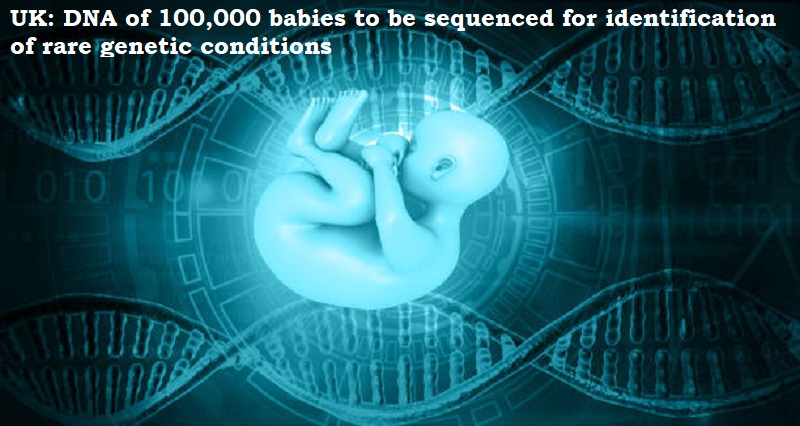
As part of a 105 million pound ($128.7 million) research programme in England, the complete DNA of 100,000 infants will be analysed, opening the door to improved diagnosis and early treatment for uncommon genetic disorders.
Whole genome sequencing (WGS) will be made available to healthy newborns for the first time as part of the government-funded study.
The National Health Service (NHS) of the United Kingdom and Genomics England are collaborating on what may be the largest study of its type. The research will analyse the entire DNA of the newborn as well as the parents if necessary, in addition to the present heel prick blood test, which tests for nine uncommon illnesses, including cystic fibrosis and sickle cell disease.
The Newborn Genomes Programme will launch the next year to assess the test’s viability, and if it is successful, it may be implemented nationwide to diagnose illnesses that impact thousands of newborn newborns each year.
About 200 rare disorders that manifest in children under five years of age are known to be linked to certain genes; adult-onset diseases will not be examined in this study.
Notably, there are 7,000 single gene diseases, the majority of which manifest in infancy.
On Tuesday, the Department of Health and Social Care announced a 175 million pound boost to ‘cutting-edge genomics research,’ out of which at least 26 million pounds will go toward enhancing the precision and timeliness of cancer diagnosis.

Post Your Comments